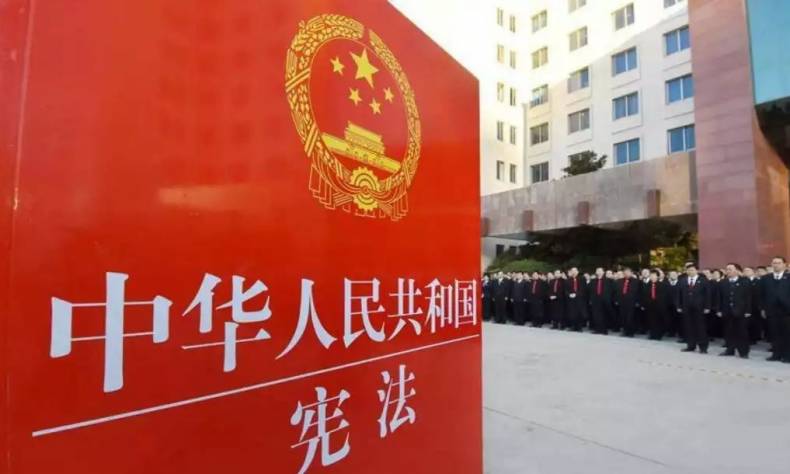
China’s Constitution Suits National Conditions
The Communist Party of China (CPC) Central Committee announced its proposal to amend China’s Constitution on Feb. 25, 2018.
It proposed to include the major theories, viewpoints, principles and policies adopted at the 19th CPC National Congress as part of the country’s Constitution.
By Gong Wei
The Communist Party of China (CPC) Central Committee announced its proposal to amend China’s Constitution on Feb. 25, 2018.
It proposed to include the major theories, viewpoints, principles and policies adopted at the 19th CPC National Congress as part of the country’s Constitution.
The amendment package is in line with the latest development of the CPC and the country. It will provide a strong legal safeguard to upholding and developing socialism with Chinese characteristics in a new era.
China’s existing Constitution was enacted in 1982. It was formulated based on the country’s two previous fundamental laws: the Common Program of the Chinese People’s Political Consultative Conference (CPPCC) formulated in 1949, and the Constitution adopted in 1954.
Over the past seven decades, the Constitution has gone through many changes, each in accordance with the achievements and the experiences the CPC and the Chinese people gained in the pursuit of development and prosperity.
As the country’s fundamental law, the Constitution conforms to the common will and fundamental interests of the people of all ethnic groups.
Recognizing the fundamental achievements made by the Chinese people under the leadership of the CPC, the Constitution stipulates that China is a socialist country with a people’s democratic dictatorship led by the working class and based on an alliance of workers and farmers. It also stipulates that the system of people’s congresses is the country’s fundamental political system.
Moreover, the Constitution has clear stipulations on the major systems and principles the country must follow, including multiparty cooperation and political consultation under the leadership of the CPC, the system of regional ethnic autonomy, the system of people’s self-governance at the grassroots level, the principle of socialist rule of law with Chinese characteristics, the principle of democratic centralism, and the principle that the state respects and protects human rights.
The existing Constitution has been in place for 36 years, and it has effectively ensured that all work is done under the leadership of the CPC, and that the country is run by the people. It has effectively promoted the progress of reform, opening up, socialist modernization, and socialist rule of law. It has also upheld national unity, ethnic solidarity, and social stability.
The Constitution provides the fundamental legal guarantee for the pursuit of the great rejuvenation of the Chinese nation following the path of socialism with Chinese characteristics. It must be enforced in all aspects on a long-term basis.
In response to changing conditions and maintaining the practice of upholding and developing socialism with Chinese characteristics in a new era, China needs to make certain revisions to the existing Constitution to ensure the law’s consistency, stability, and authority.
The constitutional amendments will proceed in accordance with the law and only part of the Constitution will be amended.
Source: China.org
This post was translated by Chen Xia. Its original unabridged version was published in Chinese.
Opinion articles reflect the views of their authors only, not necessarily those of cnfocus’.
 Facebook
Facebook
 Twitter
Twitter
 Linkedin
Linkedin
 Google +
Google +







